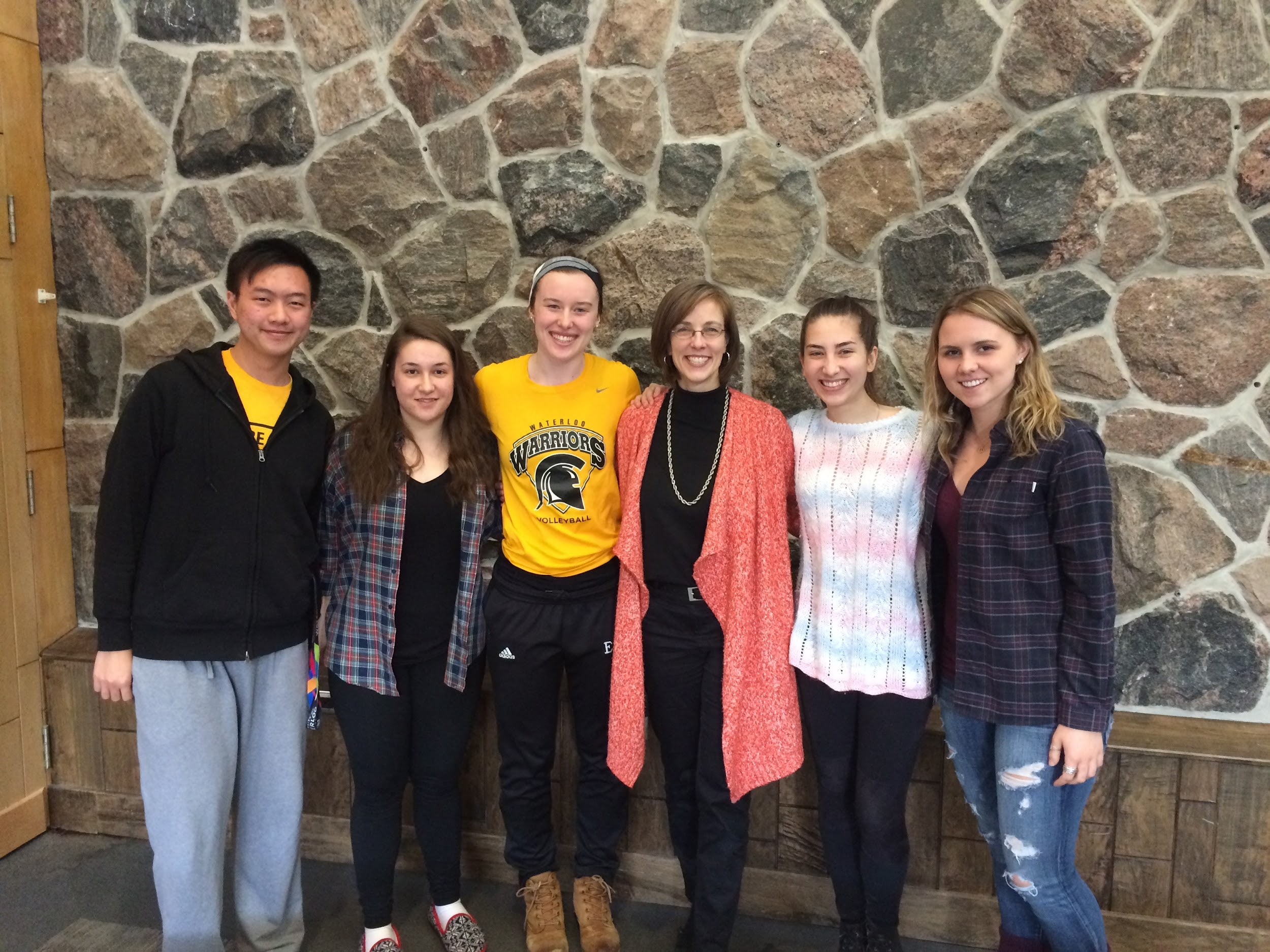Written by: Laura Burjoski, Ian Chui, Devin Fitzpatrick, Morgan Gitt, Emily Needles, Kathy Nguyen, Hayston Lam, Giulia Langella, Alena Tourianski

One in four people live in fragile and conflict affected areas in our world today. Their lives are plagued by the horrors of violence, crime, and war; much of the developing world continue to live in constant and inexorable fear. In this regard, the conflict trap is a development barrier that is increasingly difficult to escape from, often leaving people in chronic states of poverty and underdevelopment.
On Thursday, March 19th, 2015, the first year International Development students had the opportunity to hear about such crippling conflicts from the first-hand accounts of former technical advisor for Peace and Justice, Professor Reina Neufeldt. Neufeldt is now an assistant professor of Peace and Conflict studies at the University of Waterloo, and came to share her experiences through her talk entitled, “Watch Your Step! Development and Peacebuilding in East Timor.”
Throughout history, colonization had major dividing effects on East Timor, creating language barriers, as well as cultural and political rifts. For 450 years, East Timor was colonized by the Portuguese, the Dutch, and was even taken over for a brief period by Indonesia. East Timor was finally declared an independent nation in 2002, but after violent occupations, referendums, and major displacement, the unstable population became a very fragile social construct. As a result, civil unrest and conflict became a daily occurrence.
The case study of East Timor concerns a nation once governed by incredible social and political revolts, all of which were driven by a massive internal division between the East and West regions of East Timor. The core of this intrastate conflict was centered on a vast claim of discrimination within the military; it was widely believed that the policies of the military favoured the East and discriminated against the West. As a result, hundreds of soldiers from the West marched on the streets of East Timor in protest. East Timor was a nation state divided and fell into self-destructing chaos.
An important factor in the rise in conflict was the leadership of the newly independent state. The government of East Timor is comprised of people who spent their entire lives fighting for independence. Therefore they are extremely knowledgeable in armed conflict, but less so in managing a sustainable country. The point in which a decision was made to manage the military strike was a catalytic moment in Timor’s history.The decision was derived from people with a background tied to clandestine warfare, as opposed to a political or community oriented standpoint. Development actors were then faced with the challenge of how to effectively resolve the conflict and move forward.
As Neufeldt stated, “Recovery takes a long time. The effects of war lasts generations. Conflicts don’t go away easily. They stay with you.” In this regard, solutions set forth by development agencies included conflict analysis workshops, focused group discussions, and community conflict mapping, all of which proved to be highly effective in peace making. At last the voices of the East Timorese were being heard. Thus, the solutions implemented in East Timor showcase the effectiveness of participatory approaches in development; a recurring theme throughout the first year International Development class.
Ultimately, Neufeldt’s personal experience in East Timor serves as a platform for divulging the ineluctable linkages between conflict, peace, and development. Her broad political and humanitarian endeavours have sought to bring further understanding of the roots of conflict, the keys to peace, and the foundation for long-term development. As development seekers, it was a pleasure to dissect her profound knowledge and expertise.